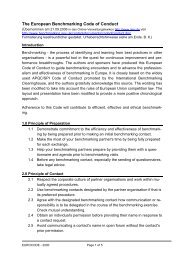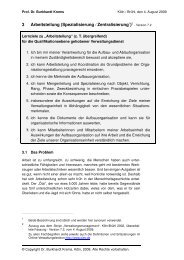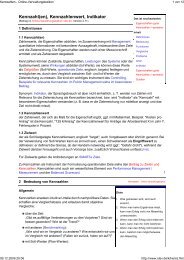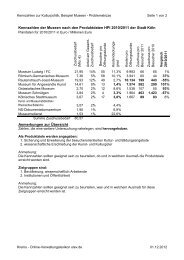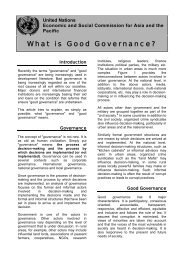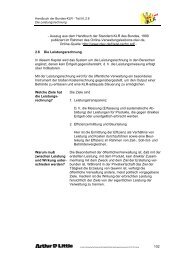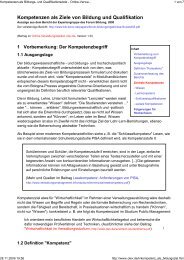Strategy Survival Guide
Strategy Survival Guide
Strategy Survival Guide
Create successful ePaper yourself
Turn your PDF publications into a flip-book with our unique Google optimized e-Paper software.
environment in which prevailing assumptions are taken for granted, and also from the more practical<br />
pressures of day to day issues.<br />
Keeping A First Principles Perspective<br />
Whether developing a new strategy, or managing the ongoing implementation of a policy, it is valuable to<br />
develop and retain an objective first principles perspective. Regularly asking the question ‘why?’ can be a<br />
powerful way of uncovering the motivating forces shaping the behaviour of different players in a system, and<br />
checking that the underlying rationale, incentives and structures are still appropriate and valid.<br />
Designing a System From First Principles<br />
Given the space to rethink an approach to a policy issue, first principles thinking encourages an explicit<br />
approach to identifying and understanding the drivers and incentives that are together expected to determine<br />
behaviours and hence outcomes of a system. Techniques such as Systems Thinking and Theories of<br />
Change (described in further detail in The Magenta Book on Policy Hub) use similar logic and again stress<br />
the importance of understanding the causal sequence through which an intervention is anticipated to have its<br />
effect.<br />
A first principles approach also encourages the generation of ‘ideal’ solutions. Temporarily putting aside<br />
issues of feasibility and acceptability allows the ideally suitable solution to be designed. This ideal world<br />
solution can be used to challenge resources allocation decisions and explore the political appetite for radical<br />
change.<br />
Strengths<br />
• Helps to challenge implicit assumptions.<br />
• Uncovers perverse incentives, undesired behaviours and unintended consequences.<br />
• Encourages a fresh approach to issues, and helps to develop creative and innovative solutions.<br />
Weaknesses<br />
• Challenging the status quo can be uncomfortable, especially for those with vested interests.<br />
• It can be very hard to challenge fixed boundaries that are not initially open to debate and to obtain<br />
the necessary mandate and commitment for a fundamentally re-think.<br />
First principles thinking<br />
In Practice: SU Alcohol Misuse Project<br />
In the Alcohol project, going back to first principles meant asking questions such as:<br />
• Why should Government intervene/have a role at all?<br />
• What should the overall goals of government policy in relation to alcohol be? Maximising wellbeing?<br />
Or reducing harm?<br />
• Where is the line between the responsibilities of the state and the responsibilities of the<br />
individual?<br />
• What are the rights and responsibilities of other actors in tackling alcohol-related harm - e.g.<br />
should the alcohol industry be required to internalise the externalities of its products?<br />
• Should we be taking whole population measures to tackle alcohol-related harm (e.g. by<br />
increasing price), or should we target particular harm-causing groups (e.g. young bingedrinkers?)<br />
• Is alcohol a drug like any other? Would it be legal if it were invented today?<br />
• What is alcohol-related harm? Harm to the drinker? Harm to drinker's friends/family? Harm to<br />
wider society? Are some types of harm more serious than others?<br />
<strong>Strategy</strong> <strong>Survival</strong> <strong>Guide</strong> – <strong>Strategy</strong> Skills<br />
Page 95



